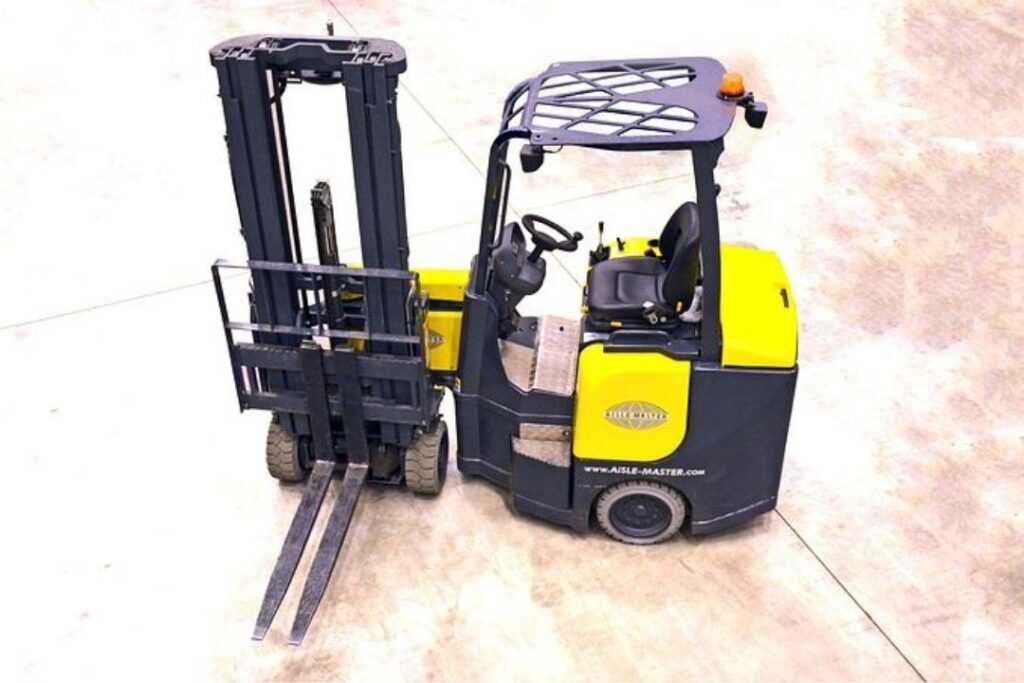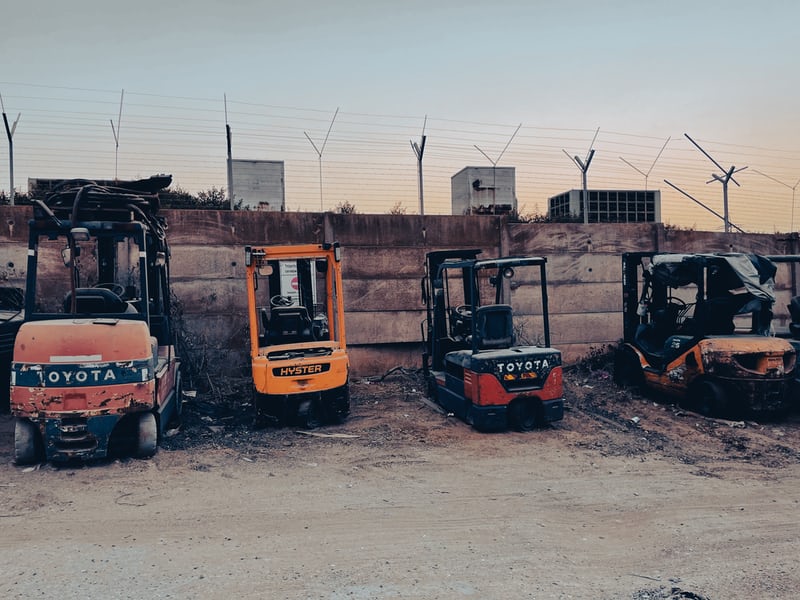Most Common Forklift Accidents

As useful and revolutionary forklift trucks are, forklift accidents are unfortunate circumstances that can occur in warehousing and transportation businesses. While there are many different types of forklift truck training programmes to help minimise accidents around the warehouse, this doesn’t totally eliminate the possibility that a disaster can occur. Human error is something all of us are prone to and as such, this article will discuss:
- Most common forklift accidents
- Preventative measures
- Final considerations
Most Common Forklift Accidents
It has been well documented that forklift trucks are responsible for more serious accidents at work than cars and Heavy Goods Vehicles (HGV). Furthermore, according to the OEA 2021 statistics, there are 34,900 serious, and 61,800 non-serious injuries resulting from forklift truck accidents annually. What’s more noteworthy is that In some cases, accidents may even occur even if the forklift truck is being used safely so it is important to minimise possible accidents as much as possible to prevent these accident related statistics from rising. With this in mind, below we have listed the most common forklift accidents:

Toppling Over
To start our list of common forklift truck accidents we have a forklift topple over. An uneven surface or uneven loaded truck can cause a forklift truck to lose its centre of balance and tip laterally or in a forward motion if the load is too heavy. As a result of this, it can seriously injure the driver and/or surrounding individuals. Furthermore, objects misplaced on the path you wish to take in your forklift can be hazards for forklifts if driven over. As such, always make sure to check your surroundings and plan ahead before operating a forklift truck as this can mean you can spot any potential obstructions that could be dangerous for you and your forklift.
Racking Failure
Racking failure is a type of forklift accident that can become catastrophic if the wrong circumstances come into play. You often see whole warehouses destroyed from clips published across the internet from complete racking failure. For example, if a heavy load is to be stored on the highest racking level to preserve space in the warehouse, but the forklift driver has a lapse of concentration, then the load could either; fall onto passersby, fall onto the forklift truck or clip other storage pallets which could have a domino effect and knock off more pallets.
Pedestrian/Vehicle Collision
Just like objects, people and other vehicles can be hit and can be accustomed to major accidents. Incompetent or untrained forklift drivers can potentially run over pedestrians as their spatial awareness is poor or equally, they could crash into other vehicles if drivers are simply not using their rearview mirrors for example. As such, it is recommended to always take care when operating a forklift truck in terms of speed and control and to enrol on aunty training to improve your forklift handling and peripheral awareness.
Speeding
The last most common forklift accident we have on this list is speeding. Speeding still remains to be one of the common causes for catastrophes to occur in the warehouse with hundreds of cases recorded every year of forklift trucks being driven at unnecessarily high speeds. With this in mind, It is highly advised that maximum speed zones are in clear view to all employees who are operating a forklift as well as making sure that operators know the designated speed limit off the top of their head whenever asked.
Preventative Measures
Now that we have listed the most common forklift truck accidents, it is time to be aware of the preventative measures which can stop these accidents from occurring in the first place which can be detailed below:
Training
Training is the most crucial preventative measure if you want accidents to be greatly reduced in the warehouse. In fact, with correct training and knowledge of the safety procedures, forklift accidents can be reduced by as much as 70%. As we have previously mentioned, speeding and uneven truck loads can cause forklift truck accidents however, by incorporating regular and effective training programmes for your truck operators, you can prevent the number of accident cases from happening around the workplace drastically. Here at Trucks Direct, we have published a blog on the different types of training for your forklift operators. For experienced operators working in your warehouse, you should encourage them to take the refresher course to brush up on their knowledge of operating forklift and will greatly reduce the risk of accidents occurring around the workplace.
Effective Employee Screening
Employee screening includes verifying qualifications and other information related to a job candidate. One of the top ways to prevent forklift truck accidents is to make sure potential new employees you hire have outstanding records of previous experience in a warehouse. Asking if the candidate has had any previous accidents in the past and how they have overcome them can be an effective question to assess the honesty and perhaps the severity of the previous accident which you can then judge yourself if they are suitable for the role.
Additional Time Off
The last preventative measure to reduce workplace accidents is to allow for additional breaks for employees who are prone to forklift driver fatigue. Fatigue is a dangerous problem for those operating in a warehouse environment. It has been well documented that fatigue can lead to:
- Reduced hand-eye coordination
- Irritability
- Muscle soreness or weakness
- Dizziness
- Memory loss
- Trouble concentrating
With these symptoms in mind, you can obviously see how dangerous this can be for those operating a forklift. Accident potential sky rockets and in the worst case scenario, fatalities can occur. As such, allowing your employees to have additional time off if they are likely to be prone to fatigue can have astronomical benefits for your forklift business.
